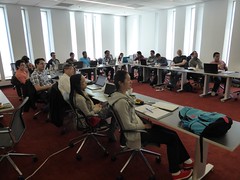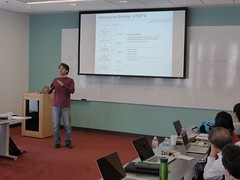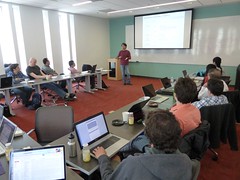Klaus Schulten, professor of physics and Beckman Institute faculty member for nearly 25 years, has died after an illness. Schulten, who led the Theoretical and Computational Biophysics Group, was a leader in the field of biophysics, conducting seminal work in the area of molecular dynamics simulations, illuminating biological processes and structures in ways that weren’t possible before. His research focused on the structure and function of supramolecular systems in the living cell, and on the development of non-equilibrium statistical mechanical descriptions and efficient computing tools for structural biology. Schulten received his Ph.D. from Harvard University in 1974. At Illinois, he was Swanlund Professor of Physics and was affiliated with the Department of Chemistry as well as with the Center for Biophysics and Computational Biology; he was Director of the Biomedical Technology Research Center for Macromolecular Modeling and Bioinformatics as well as Co-Director of the Center for the Physics of Living Cells.
A memorial service and reception was held November 7. The Beckman Institute will host an honorary symposium in 2017.
Benoît Roux, PI of the MPSDC Computational Modeling Core of which Schulten was an active contributor, shares the following words:
Understanding how biological macromolecular systems (proteins, nucleic acids, membranes) function in terms of their atomic structure represents an outstanding challenge for computational chemists and biophysicists. In this regards, the groundbreaking achievements of Klaus Schulten in Biophysics have opened the door to an unprecedented understanding of biological macromolecular machines. Thanks to the pioneering work of Klaus Schulten, models rigorously anchored in physical laws are now an intrinsic part of life sciences. Because of his intellectual leadership, the complexity of biological systems that can be simulated goes well beyond anything one would have dreamed just a few years ago. By his outstanding contributions, Klaus Schulten has changed the paradigm of computational science and molecular dynamics simulations of complex molecular systems. His tragic loss will long resonate throughout our community.
But Klaus was more than a great scientist, for many of us he was also a close friend. He was great company, and a very collegial and generous member of our community. We will cherish all these memories with him forever.







